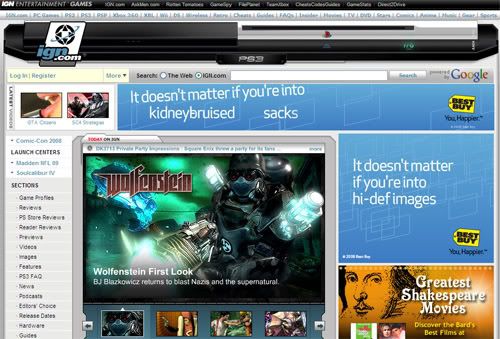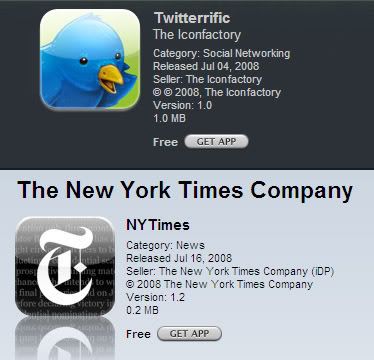While at SpaceCamp over the last couple days (in gorgeous Santa Monica), there was a lot of discussion around engaging advertising formats and units. Most of the conversation was around advertising on social media and UGC - which clearly adds a variety of additional complexities. When it comes to advertising formats, two verticals tend to be most aggressively leading the charge: video games and celebrity 'news'. I spend a lot of time actively looking for online ads and understanding what network is trafficking them.... but most consumers have trained themselves to visually block out traditional units (728x60, 160x600, etc). I know from my experience, for instance, that the 728x60 atop this blog doesn't perform anywhere close to the square unit within each post.
Go to IGN.com and PageSix (from the NY Post) to see aggressive, cutting edge advertising (and they've been doing this for a while). They are doing two interesting things:
1. Selling 'tethered' units to the same advertiser. So an advertiser gets two traditional units that site beside one another. The benefit of this is that the units can speak to one another and represent a significant portion of the page - consequently, they get a greater rate than each unit would sell for separately. Typically these units are rich media.
2. Selling 'skins' where the page template is themed and effectively becomes a major advertising unit. Perez Hilton was actually one of the early adopters of this format.
This clearly only works when you either sell your real estate directly or through an agency - but the result is advertising that
- clearly cannot be overlooked - delivers greater value for the advertiser and consequently greater eCPMs for the publisher - and because the units are so rich and stimulating, a relevant and engaging user experience for the reader
Would you rather see these sorts of ads or, frankly, the types of units that appear on this page? The reason this works best (for now) in Video Games and Gossip is that those two audiences are visually stimulated and more welcoming of aggressive promotion. I suspect this will expand quickly - look for sports, video and technology to follow.
IGN - an example of 'tethered' Best Buy flash units:
 Page Six skinning their page to promote the new Pamela Advertising show
Page Six skinning their page to promote the new Pamela Advertising show

Page Six's 'tethered' unit for the new VH1 P Diddy show








